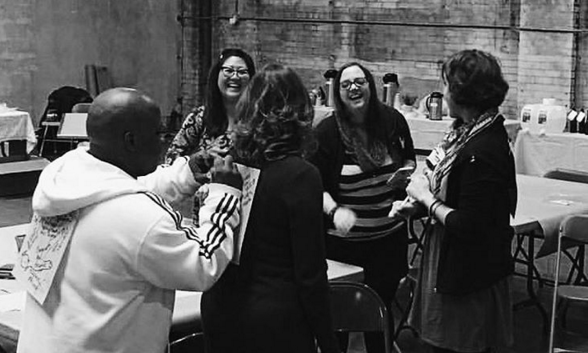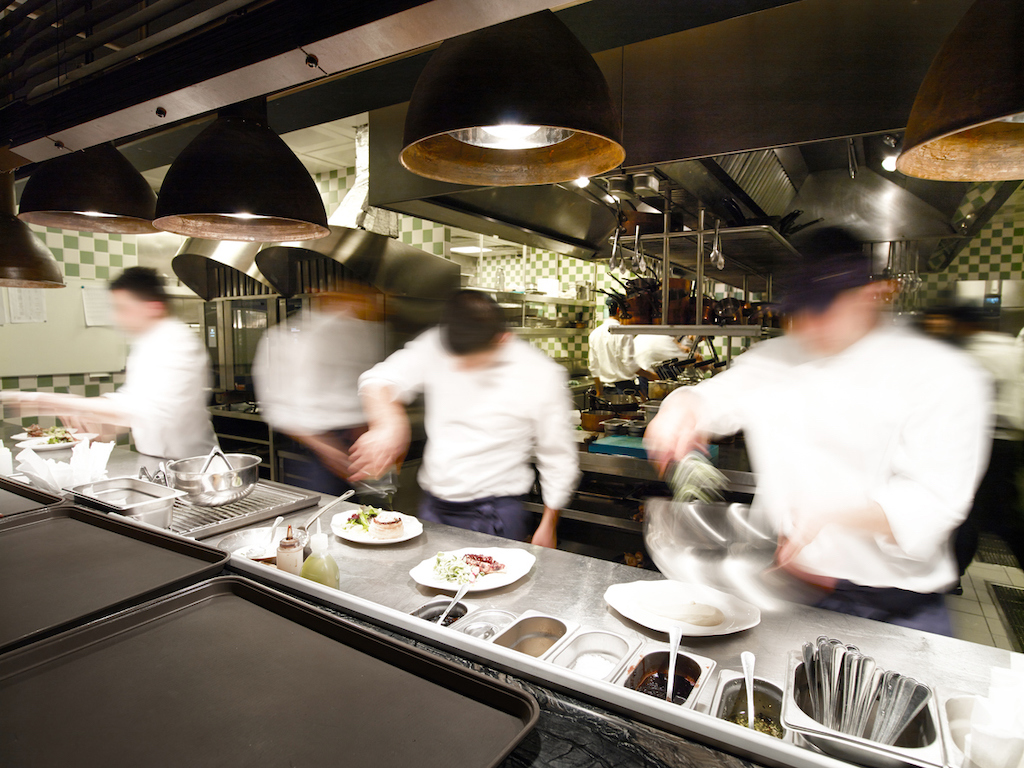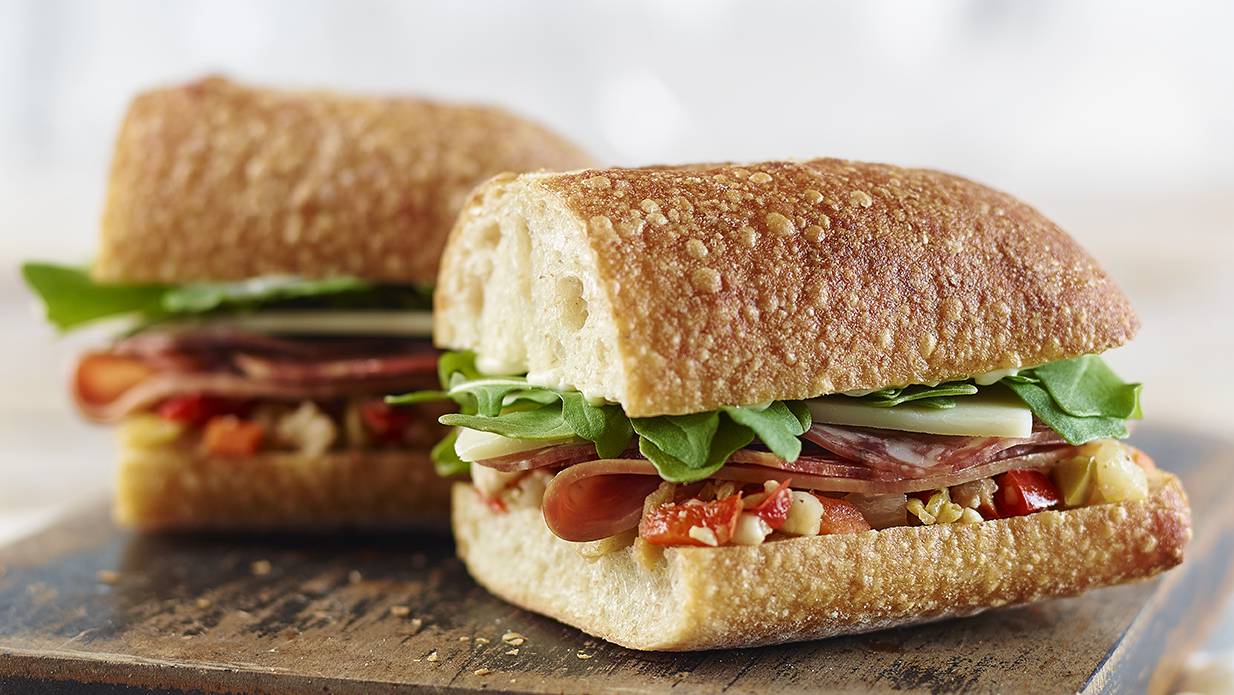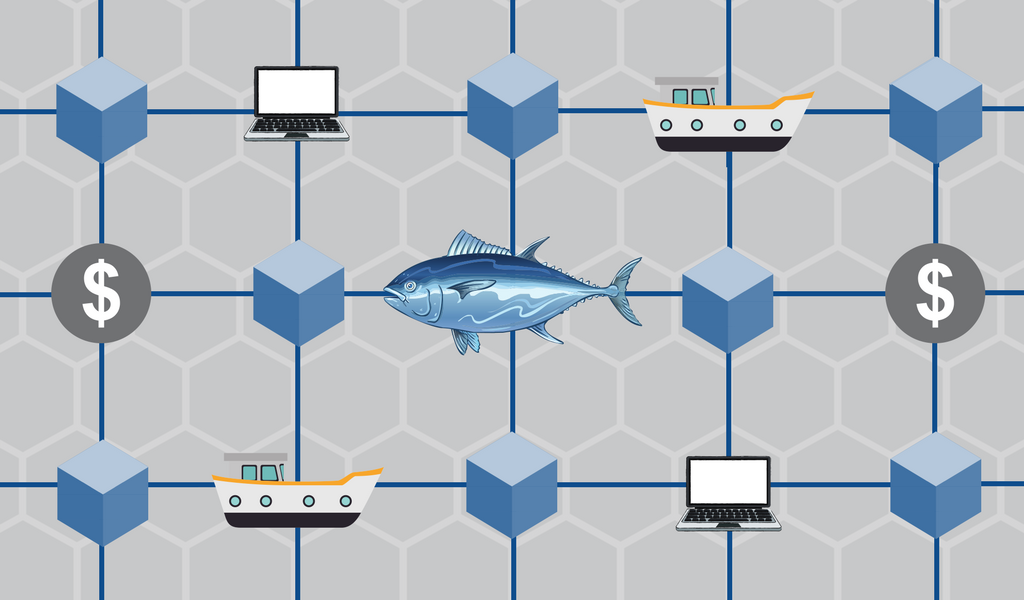Devita Davison is Marketing and Communications Director at FoodLab Detroit. We caught up with her last time she was in town to talk about the real meaning of equity.

You help run a food incubator in Detroit. What’s behind the wave of entrepreneurship that’s lead to the rise of food incubators?
The entrepreneurship conversation is happening on a national level, and I think it’s indicative of where we are with our economy. No more do we have this economy where people can graduate with a high school degree and find particularly good-paying jobs. No longer do we have the stability, either, of going to a company where we can work for 20, 30, 40 years.
In the city of Detroit, people could graduate with nothing but a high school degree and get a job that paid $70,000 a year. They could find work in the plants for GM or Chrysler, or any of the ancillary businesses that were connected to the automotive industry. That lifestyle is no longer. That stability, we don’t have.
So, people are starting to see the value of starting your own business. I like to think that entrepreneurship gives people control of their own destiny.
https://www.instagram.com/p/5aa07-jM3W/?taken-by=foodlabdetroit
At the Just Food conference in March, you asked a panel of New York City government officials what they were doing to help increase real-estate ownership for food businesses. No one had a good answer. Why should ownership be part of the conversation?
Ownership is absolutely key to long-term sustainability.
Let me give you an example. The African American community created a whole movement that we called Soul Food, which comes out of the legacy of the Great Migration period. During the 60s and 70s, during the Black Power movement, you saw the opening of a lot of soul food restaurants. One, in particular, is called Sylvia’s Soul Food—which, along with Dooky Chase in New Orleans, is one of the most long-standing soul food restaurants in what we call gentrifying communities.
Why is Sylvia’s still there? Why is it still sitting on 125th Street in Harlem, which is prime real estate, as Harlem is going through a definite phase of gentrification? It’s because the family owns the building. There was never a landlord around who could quadruple the rent.
I’ve seen so many restaurants close. So many families don’t have the opportunity to pass on that restaurant—the opportunity to accumulate wealth from generation to generation—because they did not own the property. The rent went up, and they just couldn’t sustain it.
Government organizations and non-profit foundations do a lot of work to help empower food entrepreneurs. But I don’t think property ownership is typically part of the conversation. What’s been challenging about advancing this idea?
It’s tough. The easy thing is to ask: how can we start small businesses? And how can we help entrepreneurs? Don’t get me wrong: that is so very important. It really is. Being an entrepreneur and a small business owner puts food on the table for the people that I have the privilege of serving every day. But the fact of the matter is, how can we push this envelope even further–and help them to actually have an equity stake in the business that they started from nothing? What are we doing, from a government standpoint to make sure we have not only entrepreneurs who are small business owners, but how can we ensure that these entrepreneurs own the land? Own the building? That’s what it means to talk about community wealth-building. Property is how you build wealth in this country.
But everybody wants a quick fix. I come from the “non-profit industrial complex.” (I hate to use that term, but it’s what we call it in the non-profit world.) I get it. FoodLab is funded by some pretty spectacular foundation partners. This is how we survive. But I also know that sometimes foundations can have a short attention span. They think we’re going to fix this problem in a grant cycle period. In order to get the results that they want, the question becomes: what can we do as a quick fix?
The quick fix is deploying resources to provide technical assistance for entrepreneurs who want to start a business. That’s easier to do, in the big scheme of things. But we shouldn’t forget the larger question, which is: how do you get those entrepreneurs to have ownership? Meaning, how do you get those same entrepreneurs who are creating a specialty food product, or a value added product, to actually own the manufacturing facility? How do you get a caterer to move into a facility so that they can start their restaurant, or a mobile food vendor who wants to move into a facility, to actually own the building? That’s a larger, deeper conversation. And unfortunately, it’s a conversation that a lot of people don’t want to have–because it’s hard, and it’s long, and it’s slow.
https://www.instagram.com/p/-9FnhojM8n/?taken-by=foodlabdetroit
Do food companies, compared with other forms of entrepreneurship, have special capabilities as tools of empowerment?
The easy answer is that everybody’s got to eat, right? It’s so universal: food is tied to community, it’s tied to health, it’s tied to nutrition, it’s tied to culture. Food is so powerful right now. There are entire conferences dedicated to the power of food in real estate and development. In New York City, we have gourmet food halls that are being created on the first floor, and high-rise real estate going on on top of it. You’ve got whole communities in the South where they’ve got subdivisions with a farm in the middle. There’s no golf course now: there’s a farm in the middle of the subdivision, and everyone’s growing and gardening and locally-sourcing the ingredients for their dinner. It’s crazy!
I think The Atlantic magazine gave eleven indicators for how you can know if your city is going to be successful. One of them was how many craft breweries you have in your town. Food has phenomenal power to transform communities. I just want to make sure I’m doing the work to make sure those places remain authentic, and they remain in the hands of people who actually care about the community and want to be a part of that neighborhood. That’s why I do this work.











